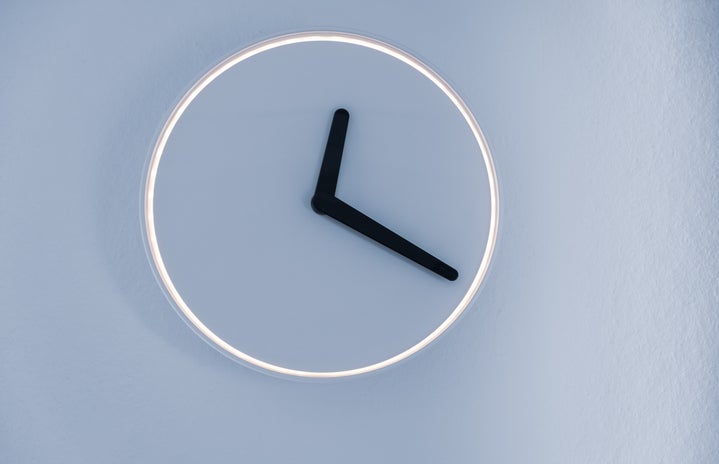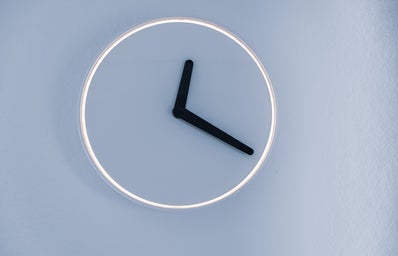Content warning: This article mentions domestic violence, mental health, suicide, postpartum depression, and substance abuse.
Back in 2021, Jimmy McGovern gripped viewers with his bleak drama, Time, centring on the harshness of life in a men’s prison, featuring brilliant actors Sean Bean and Stephen Graham. On October 29th of this year, McGovern returned with the help of Helen Black for a second series, focusing instead on the hardship of life in female prisons. Series two of Time is a testimony to McGovern’s harrowing writing and is the epitome of true acting mastery. The series centres around three protagonists, Orla, played by Jodie Whittaker, Kelsie, played by Bella Ramsey, and Abi, played by Tamara Lawrance. The storyline of each character represents a common struggle that affects households across Britain, and the writers do not shy away from sensitive topics, instead choosing to put them on display to humanise the inmates. This humanity that persists throughout the series is crucial to installing empathy in viewers for the characters, and helping them to see the individual behind the crime.
**Warning: There are spoilers ahead!
Orla’s story in Time is arguably the most relatable to the British public, as it focuses on her struggles as a single mother trying to keep her family together with little emotional or financial support. Her story is a representation of the poverty cycle in Britain, as she is sentenced to prison simply for toying with her electric metre. She is not held for long, but we see her return shortly afterwards because she has been caught stealing from her boss in order to secure a deposit for a flat. Her biggest priority is getting her kids back from social services, after they were surrendered because her alcoholic mother was too inebriated to care for them. Orla’s story is a painful reminder of the many struggling families across Britain who have been affected by the cost-of-living crisis and the austerity of the Conservative party. Any family can be vulnerable to financial destitution, and Orla’s story is an embodiment of the extreme difficulty in trying to regain stability having faced time in prison. She no doubt would have experienced prejudice trying to secure a job, housing, sustenance, or even friendship, once having a criminal record. However, we are left with a seed of hope that she may be able to recover her livelihood again as her final scene shows her reuniting with her eldest son, who has been distant from her throughout the series. This finale demonstrates her resolve to never resort to crime again to support her family, as well as her son’s forgiveness of her crimes. His acceptance of his mother is crucial to her sourcing the strength to get back on her feet, and get her family back together. I could not help crying with joy at this ending for Orla, as while life is even harder for her than before, she has hope that she can become the mother she once was again.
Kelsey’s story in Time is truly heart-breaking, centring on her struggle as a heroin-addict, her sobriety, and now, her pregnancy. Kelsey is not just battling substance issues, but also relationship ones with her boyfriend, Adam, who is abusive. Following his attempt to ruin her newly achieved place in the mother and baby unit in prison by smuggling in heroin for her, Kelsey is caught, and her baby is taken away from her. This sabotage flips a switch inside her, giving her the clarity she needs to sever ties with him. The phone conversation she has with Adam following this realisation is one of the most harrowing scenes in the series, as she is met with vicious death threats to both her and her baby if she goes ahead with telling the police about what he did. Despite the threat, Kelsey follows through and makes the incredibly courageous decision to testify against Adam in court, revealing how he planted a significant amount of heroin in her bag without her knowledge. The fear we feel for her as viewers while she is on the stand becomes overpowered by complete pride and admiration, knowing how difficult it is to testify against your abuser. Kelsey’s bravery in court secures Adam’s imprisonment and her temporary freedom from his malevolent clutches. However, her experience is unfortunately not a unique one, as data from the Prison Reform Trust and charity Women in Prison, shows that nearly 60% of female offenders are domestic abuse survivors. Alongside that, 40% of women admit having a drug or alcohol problem when arriving in prison. McGovern and Black, aware of these statistics, aim to show how unsuitable the current prison system is to deal with the individual needs of inmates, and the traumas and mental health issues they suffer from. Despite her hardships, Kelsey’s story is one of hope and redemption, portraying not only how people who are suffering with addiction are capable of change, but most importantly, how they deserve a chance at a better life. We are left with the impression that she is managing to stay sober and will soon be reunited with her baby. Nothing can make the viewer happier.
Abi’s story is a more controversial and divisive one, as she has been given a life sentence for infanticide. Details of her crime are only revealed halfway through the series, and we immediately see how the inmates, also acting as representatives of the British public, respond with venom to her secret being outed. She faces extreme violence as well as a hostile, turbulent atmosphere, which she does not resist as she believes that she deserves it. Abi’s story is one of severe mental anguish, as she is villainised and rejected by everyone in her life and her surrounding inmates. Her story poses the question to the viewer of how we should respond to serious crimes. Do we condemn murder across the board, or do we listen to the individual context and take that into account? I believe that in Abi’s case, and in many others, her circumstances are crucial to understanding her crime, and should be reflected in the severity of her punishment. She suffered with postpartum depression, which not only manifested in very low moods and feelings of isolation, but also hallucinations which led her to believe that killing her baby would be the only way to end what she saw as his perpetual suffering. Her resolve to kill her child, and attempt to take her own life, should be seen as a symptom of her severe mental illness; she should be treated with far greater empathy than she receives. Abi was, and remains, a woman that needed much more support than she got. Her story is a confrontational reminder from McGovern and Black of the overly harsh standard that society holds for mothers, and the shame, isolation and desperation that can manifest as a result.
Series two of Time is a gritty and harrowing depiction of a neglectful judicial system and the struggles of female prisoners in short-term, and long-term sentences. It confronts the viewer with uncomfortable topics and elicits empathy for characters who they would quickly condemn in the newspapers or on the street. Time shows us just how restorative and transformative compassion can be for the lives of offenders. I believe this is seen most clearly when Abi is finally able to grieve the loss of her child when she no longer has to defend herself from attacks from fellow inmates and the outside world. Time shows just how counter-productive and destructive short-term sentences can be, ruining the chances of inmates finding stable income or housing following their sentence and pushing them into the cycle of reoffending. Each story displays the agony of prison life but ends on an optimistic note. We can hope that these positive endings are achievable for real-life inmates and not just the characters in this remarkable drama.
DOMESTIC VIOLENCE: If you or someone you know is experiencing domestic abuse, call the Refuge National Domestic Abuse Helpline for free and confidential advice, available 24 hours a day on 08082000247, or visit https://www.nationaldahelpline.org.uk/
MENTAL HEALTH: If you or someone you know is seeking help for mental health concerns, visit Mind’s website https://www.mind.org.uk/ to access mental health resources. If you would like to talk to someone, or need crisis support, contact Samaritans for free by calling 116123 or emailing jo@samaritans.org.
POSTPARTUM DEPRESSION/ANXIETY: If you or someone you know is experiencing depression or anxiety during pregnancy, or in the postpartum period, contact Pre and Postnatal Depression Advice and Support (PANDAS) using their website https://pandasfoundation.org.uk/, or the Association for Post-Natal Illness using their website https://apni.org/. If you are thinking of harming yourself or your baby, get help right away by calling Samaritans for free on 116123, or dialling 999.
SUBSTANCE USE: If you or someone you know is seeking help for substance use, call FRANK, a drug information and advice service, at 0300 123 6600 or visit https://www.talktofrank.com/
SUICIDE: If you or someone you know is experiencing suicidal thoughts, call Samaritans for free on 116123 or by emailing jo@samaritans.org. You can also contact SHOUT, a confidential 24/7 text service, on 85258, Papyrus Hopeline UK, a confidential suicide prevention service, on +44-08000684141, or Nightline, a confidential, anonymous listening service for students, through their website https://nightline.org.uk/. You can also call Switchboard, a listening service for and operated by LGBT+ people, on 0300 330 0630.


